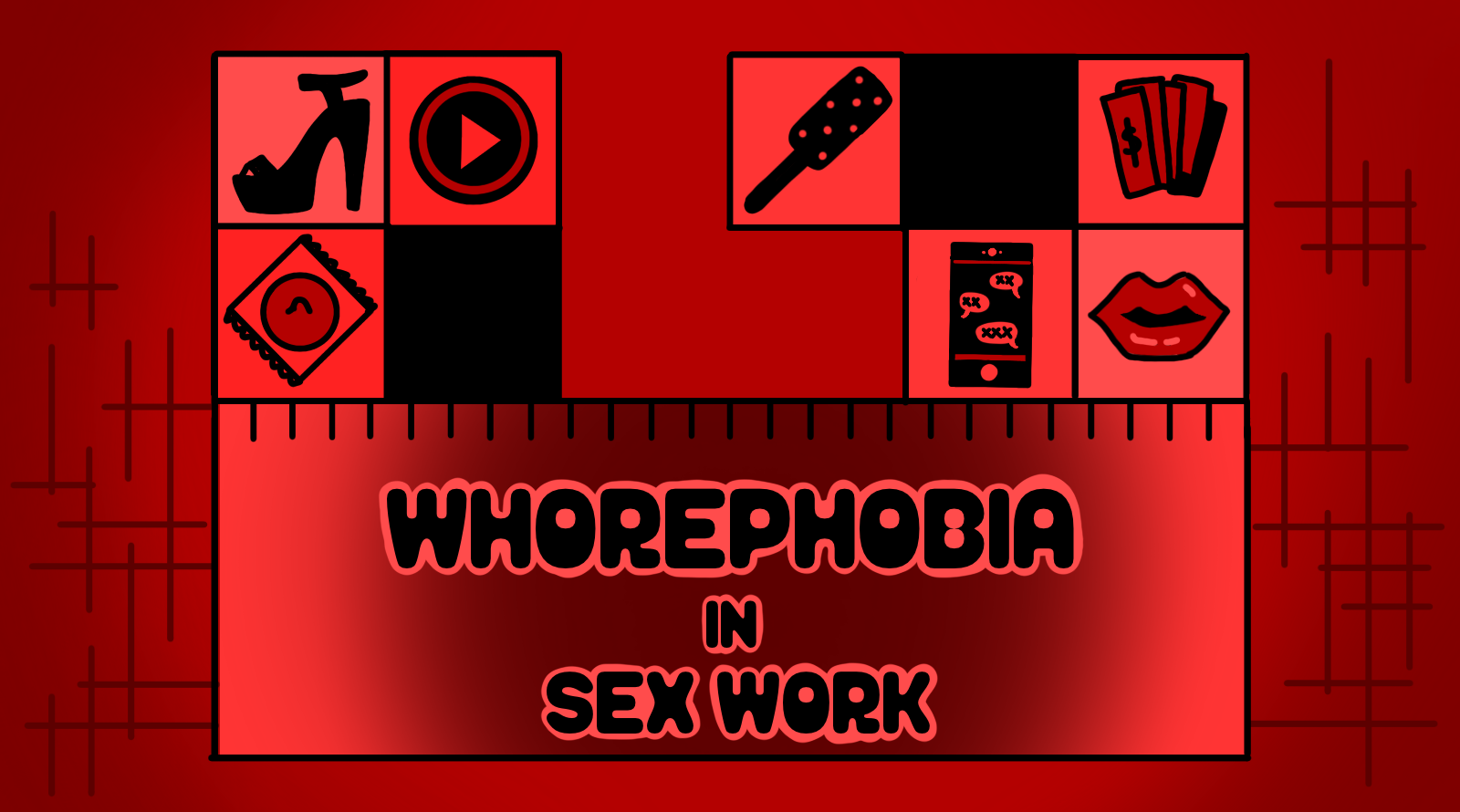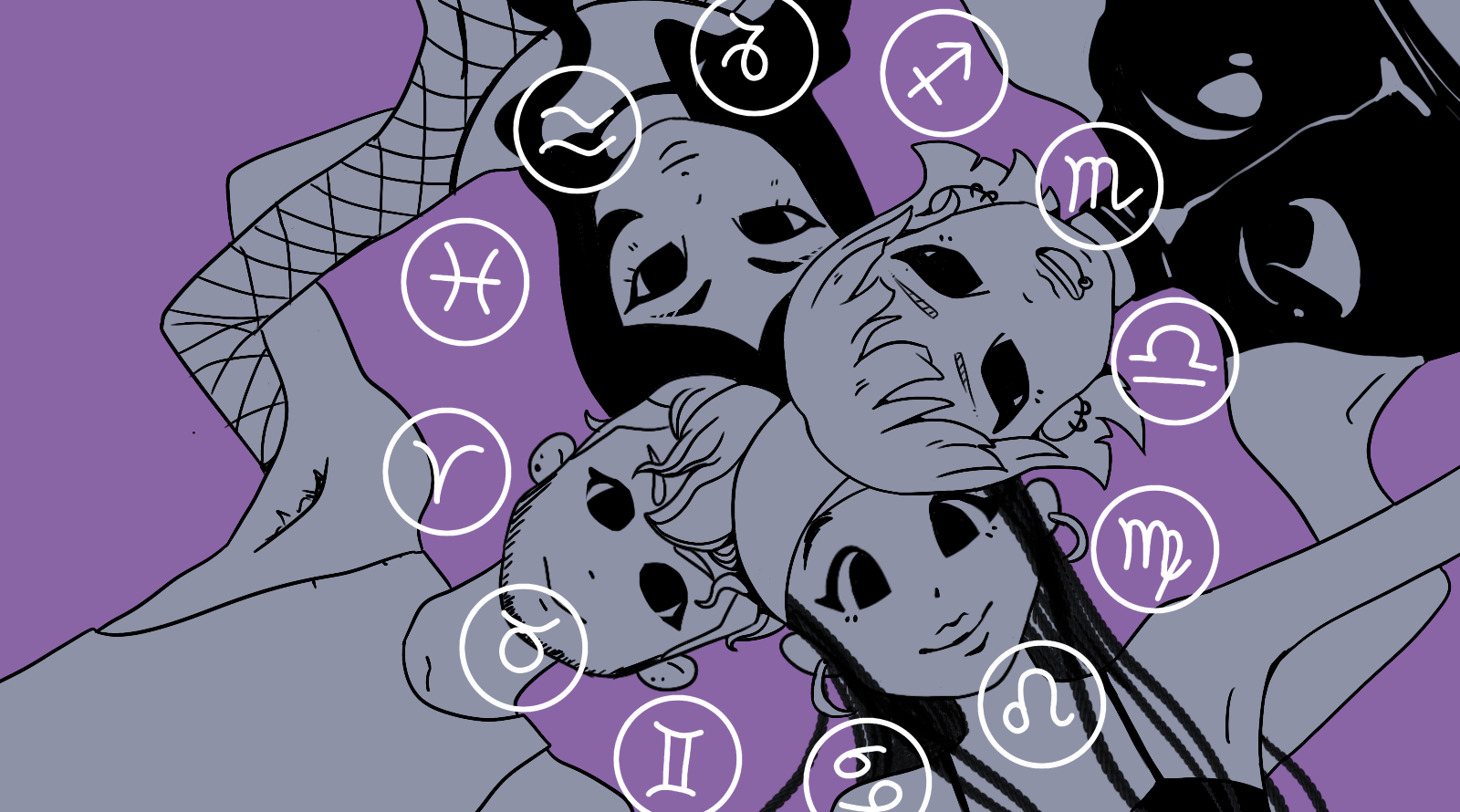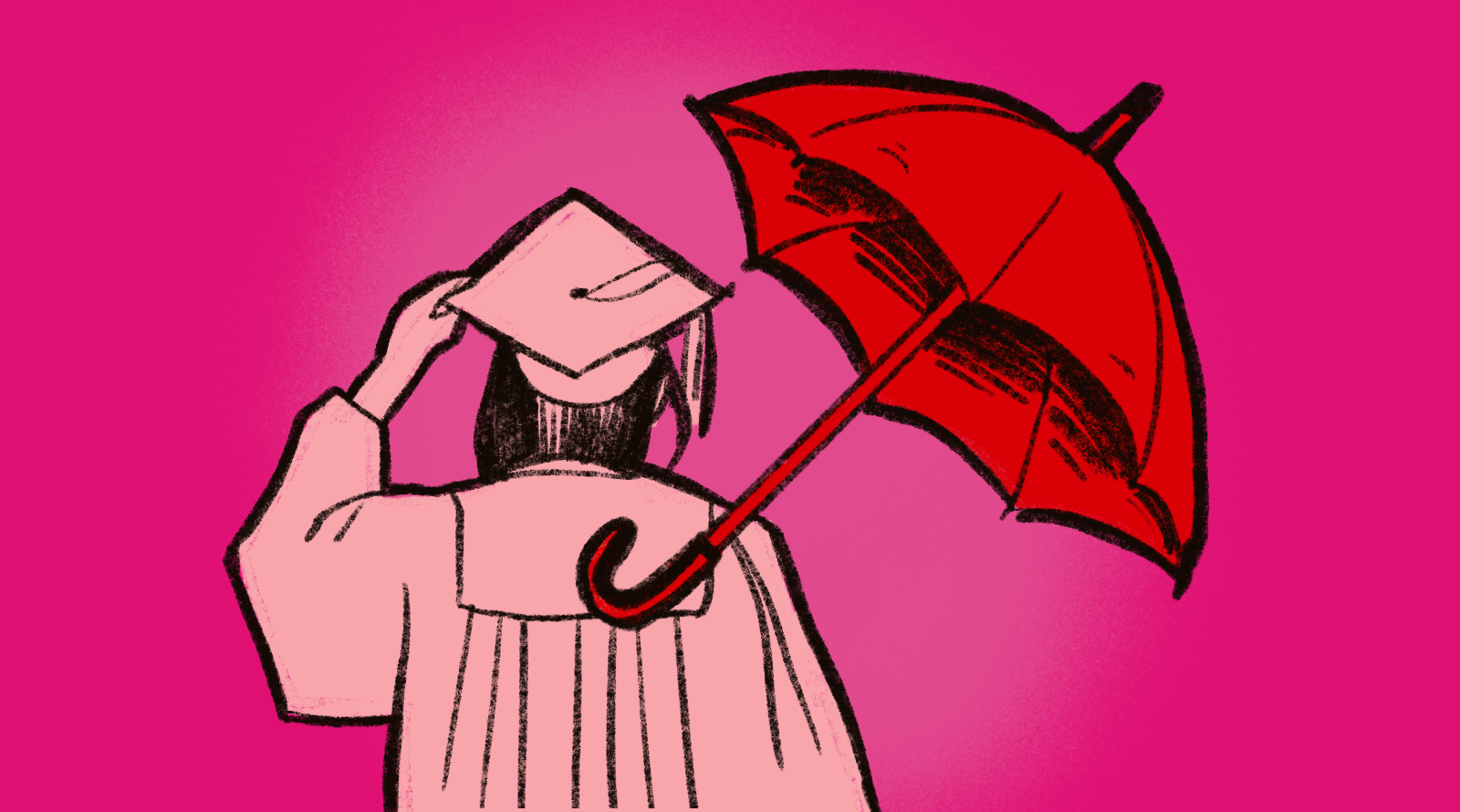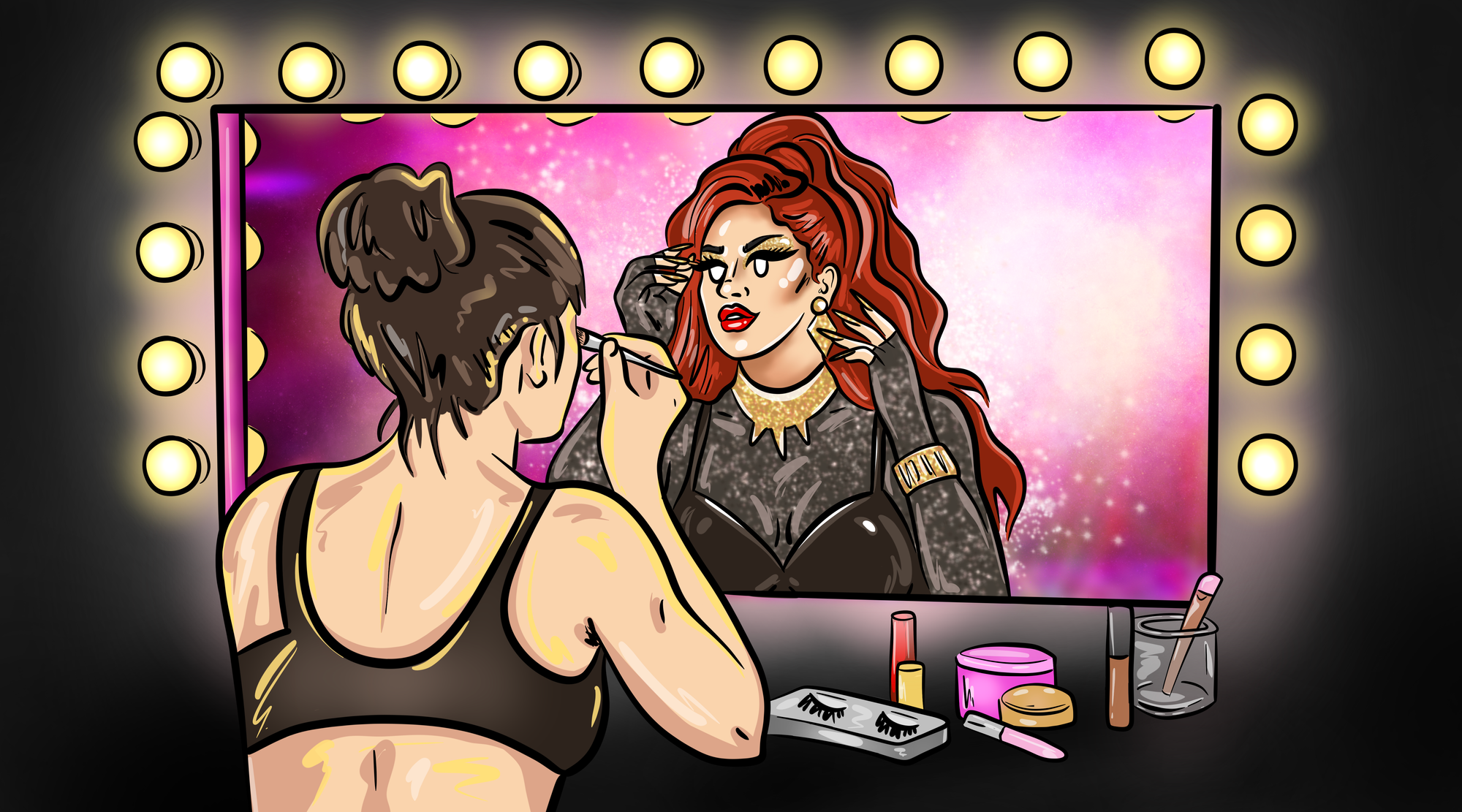Throughout my sex work career I’ve worked as an online content creator, a stripper, a sugar baby and a full service sex worker. Each method of sex work comes with its own highs and lows, but throughout my years in the industry I’ve noted that full service providers are at a much high risk of experiencing whorephobia not only amongst society, but within the sex work industry. In order to understand why this happens, we must unpack and understand the systems that whorephobia stems from.
What Is Whorephobia?
The term whorephobia “refers to the negative stereotypes, stigma, and marginalization sex workers face, which stems from a pervasive fear and hatred of sex workers. This fear and hatred frequently intersects with the fear and hatred of other marginalised groups.” For example, trans sex workers face transphobia as well as whorephobia.
Whorephobia is not something we are born with, it is programmed into us through a combination of media portrayals of sex workers and institutional racism, sexism, ableism, transphobia and classism. It is passed on through generational beliefs surrounding sexuality as presented through Western, puritanical and patriarchal ideologies.
Patriarchy, Capitalism and The Institution of Marriage
The Patriarchy is defined as a system of society or governance in which the eldest male, ie the father, is head of the family and the male line determines descent.
The shift towards Patriarchy is commonly recognised as coinciding with the rise of agriculture: humans were able to grow their own crops and raise livestock to feed and support their families. This echoes capitalism, an economic system that affords people freedom to acquire wealth.
Western societies were built upon a patriarchal capitalist ideology by passing land ownership to a male heir. The institution of marriage was used as a contract in order to ensure ownership of land. While the sons inherited the land, the daughters were used in order to provide said male heirs. In order to ensure that the heir was legitimate to the father: women had to remain “virgins” until married off and were only allowed to bed their husbands (while the husbands were free to indulge in mistresses, many being sex workers).
With all this in mind, it shows how fragile the concept of patriarchy is. It makes zero sense to trace lineage through the father. It should be traced through the child bearer as you can’t deny the baby came directly from the mother.
White Supremacy, Colonial Trauma and Fetishizing Indigenious Bodies
The colonialisation of Indignious communities across the globe has had a negative impact on the ways in which we discuss and engage in sex. White supremacy limits the expression of sex to the bounds of a hetrosexual monogamous two gender binary. This practice was (and still is) treated as virtuous, and anything outside of this was considered “savage”, “unethical” or “sinful”. The trauma of the erasure of queer identities has been passed down for centuries and can be felt in our subconscious even today. An example of this can be seen in the colonisation of Māori, the indigenious people of Aotearoa/New Zealand.
Like many indigenious cultures around the world, Māori has strong spiritual ties to the land. Māori view the human and natural worlds as being connected by their shared origins. Everything has a soul or an essence, a Wairua. This can also be applied to Māori attitudes towards sexuality: Ngahuia Te Awekotuku, an academic specialising in Māori cultural issues, states: "In the world that existed before Tasman, Cook and the arrival of outsiders, I believe there was a really robust and vigorous and intense exploration of sexualities, and an acceptance of them."
There is historical evidence to hint that as well as embracing queer relationships and gender fluidity, Māori practised non monogamy. Naturalist Georg Forster who travelled with on James Cook’s second voyage, said, “Their (Māori) ideas of female chastity are, in this respect so different from ours, that a girl may favour a number of lovers without any detriment to her character; but if she marries, conjugal fidelity is exacted from her with the greatest rigour.”
Whereas Western societies depend on the notion of female chastity in order to maintain not only male superiority, but also white supremacy. As we have seen with the colonisation of Indiginous communities across the globe, white supremacy sought to erase any beliefs and practices that did not align with their own. As British invaders began to establish claim over Aoteroa’s land, missionaries were tasked with converting Māori to Christanity. These invaders viewed Indiginious communities' attitudes towards sexuality as a detriment to their capitalistic and patriarchal way of living. Women in the West needed to remain virgins as they were being passed from father to husband to maintain the guise of patriarchal lineage. As such women who engaged in premarital sex were viewed as “damaged goods” and therfore sex workers who often engaged in penetrative sex with clients, were not viewed as wife material. Through generational conditioning, this belief is so deeply ingrained in Western society that many of us still believe it without questioning where it stems from.
Internalised Whorephobia Within Sex Workers
Prior to becoming sex workers, we were civilians. Therefore many of us sex workers may still carry sex negative and slut shaming beliefs from our cultural and societal backgrounds that have over time fed into whorephobia. Strippers, sugar babies and online content creators can be guilty of looking down on full service providers.
This is something that I have partaken in. Prior to having sex for money, I would think to myself how relieved I am that I don’t have to engage in penetrative sex with my clients. When I was strictly doing online sex work, I would brag about how much money I’d make “without even having to touch a man!” When I was stripping, this bragging shifted to “I don’t even have to see a penis!” And because people repsonded to these remarks with praise (reinforcing that this was something for me to be proud of) it made me feel that my sex work was justified and pardoned through the eyes of civilians. It wasn’t until I befriended full service providers (and eventually started engaging in full service sex work) that I became aware as to how inherently whorephobic and problematic these remarks were.
These remarks I made were harmful because they feed into the notion that sex work is only acceptable as long you don’t have to “reduce yourself” to having sex with your client. It’s a way of saying “yes I do sex work but I’m still virtuous and worthy of your respect because I’m not having sex with my clients!” This does nothing but endorse patriarchal and colonial ideology, as well as further isolating and ostracising full service providers. If full services sex workers don’t even feel safe within their own community, it puts us at a much higher risk of harm.
Everyone’s Sex Work Boundaries Are Valid
When it comes to sex work, there is a variety of methods in which you can engage in the industry. And every sex worker has their own individual boundaries when it comes to what sort of sex work they’re comfortable in partaking. Our journeys are all different: and our cultural backgrounds, personal identity and life experiences tend to impact the way we navigate sex work.
There’s nothing wrong with drawing the line at penetrative sex. The choice is yours and yours alone. But just because you don’t engage in full service sex work, it does not mean you are above those who do. Shaming another sex worker for how they engage in the industry is no different than when civilians look down on any sort of sex work because “I could never reduce myself to that. I have morals.” Civilians see us tearing each other down and justify their own hatred towards full service providers: “Strippers don’t even like full service workers? They must be bad!”
Prostitution is the oldest profession. Stripping, camming, sugar dating, OnlyFans etc would not even exist if it weren’t for the centuries of full service workers who lived before us. Stop shaming full service sex workers! Let us not reduce ourselves to whorephobia.
Citation:
Early Māori View On Sexual Fluidity Far More Liberal Than Previously Believed. Stuff. Melody Thomas (2018) https://www.stuff.co.nz/life-style/love-sex/105284489/early-mori-view-on-sexual-fluidity-far-more-liberal-than-previously-believed
Imagining Decolonisation. Kiddle, R. (2020). Bridget Williams Books Ltd.
Hōkakatanga: Māori sexualities - Early Māori sexuality, Te Ara - Clive Aspin, the Encyclopedia of New Zealand http://www.TeAra.govt.nz/en/hokakatanga-maori-sexualities/page-2
Relationship Boundaries, Abuse, and Internalized Whorephobia. Taylor & Francis https://www.tandfonline.com/doi/abs/10.1080/14681994.2019.1574400
Families: A Social Class Perspective (Contemporary Family Perspectives (CFP)) (1st ed.). SAGE Publications, Inc.Hill, S. A. (2011).
Are you a sex worker with a story, opinion, news or tips to share? We'd love to hear from you!
We started the tryst.link sex worker blog to help amplify those who aren't handed the mic and bring attention to the issues ya'll care about the most. Got a tale to tell? 👇☂️✨





